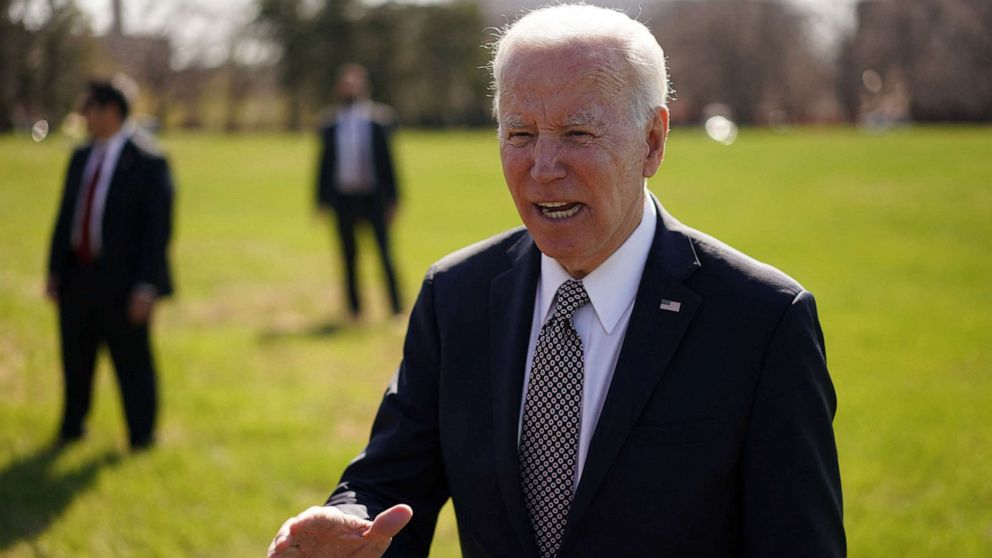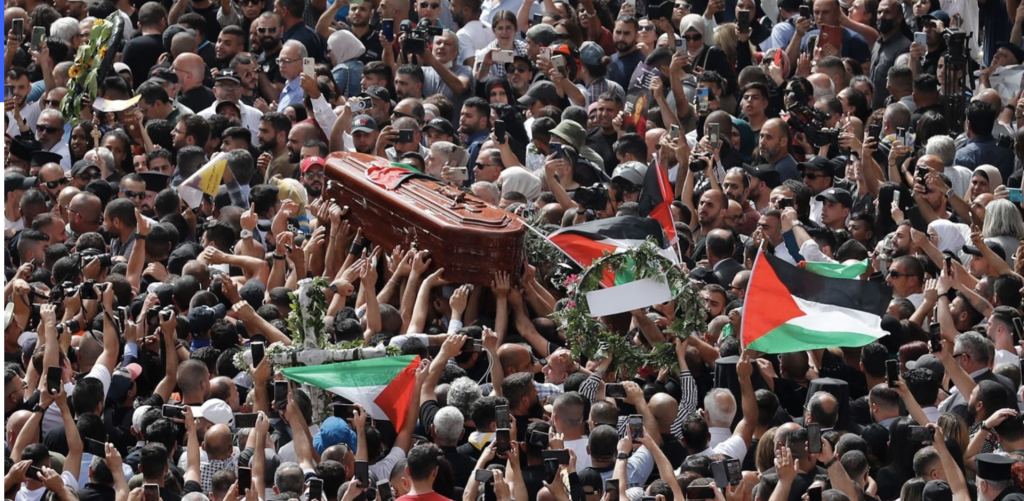Summary
Cooperation is the wow of human history: seven billion people, megacities on every continent and networks connecting people worldwide. This cooperation, however, is often interrupted by violence, which can result in war crimes. While the U.S. is calling on the world community to condemn Russia for war crimes in Ukraine, it has no legal standing to do so. The U.S., which played an active role in founding the International Criminal Court (ICC), is not a signatory to its articles. By refusing to sign the articles, it has made it virtually impossible to charge its military personnel or leaders with war crimes, in spite of evidence to the contrary. It is time for the U.S. to sign on to the ICC.
The Human Story
The primary story of human development is cooperation, individually and societally. It is the wow of human history: seven billion people, megacities on every continent, and networks connecting people across the globe.
This cooperation is, unfortunately, often interrupted by violence. Violence takes many forms from psychological to state violence. It is state violence that wreaks havoc on mass populations if by violence one means overwhelming power exercised over civilian populations to cause harm. State power uses soldiers as pawns to consolidate power by any means necessary.
Western civilization is no stranger to state violence. The Iliad, an epic poem and cornerstone of Western literature, written by Homer some 3,000 years ago, details the hell of war unleashed by the Greek state in the Trojan War. If the Greeks conquered a city, for instance, it was permissible to kill or enslave every individual. No delineation existed between combatants and civilians. Homer, with complete equanimity, observes that such behavior lies in the nature of men.
Russia and Ukraine
Russia, as most of us know, invaded Ukraine. Its soldiers, according to eyewitness reports, video films, and individual testimony, are on a killing spree. Bombing civilians in their homes, hospitals, shopping for food, on their way to or from shelters, and shooting them gangland-style in the street. President Putin has even awarded medals to soldiers turned killers.
U.S President Joe Biden and the international community have designated actions taken by many Russians against Ukrainians as war crimes. The label of war crimes is relatively new in history. It was first formally invoked against Peter von Hagenbach, military and civil commander, tasked with quelling civilian riots. He overstepped his authority and was convicted of murder, rape, and perjury by a Roman Tribunal. He was found guilty and beheaded in 1474.

The modern definition of war crimes is spelled out clearly under Article 147 of the Fourth Geneva Convention 1949, which defines war crimes as “willful killing, torture, or inhuman treatment, including willfully causing great suffering or serious injury to body or health, unlawful deportation”, points which are further elaborated upon in the articles.
According to the United Nations, which added a state-level of legal jurisdiction, “a war crime is a serious breach of international law committed against civilians or enemy combatants during an international or domestic armed conflict.” Whether in Ukraine, Syria, Yemen, Iraq, or Palestine, the protection of civilians lies at the foundation of the law, and needs to be recognized by state actors.
Difficulties of War Crimes
The International Criminal Court (ICC), founded in Rome, Italy July 1, 2002, was established to investigate and where warranted, litigate the gravest of crimes of concern to the international community: genocide, war crimes, crimes against humanity, and crimes of aggression. Although the U.S. played an active role in forming this legal entity, it is notably absent from the list of 123 countries that are state parties to this ICC agreement.
All of these historical efforts, at first blush, appear honorable and straightforward. Many crimes, after all, go beyond local jurisdictions to address core human and societal issues. It seems an impartial, fair, and clear example of an advance in human society.
Unfortunately, the legal system of international law has more to do with political power and expediency than justice. Justice, in fact, is highly relative, contextually defined, and mitigated by power. The line between murder and political expediency is a fine one. This has been especially pertinent since the beginning of what may be called the modern era of societal justice, 1949 to 2002; one step forward, two steps back.
The Nuremberg Trials, for example, were created to try scores of German Nazis who committed unspeakable crimes. It was a model of justice throughout the 20th century. Stalin, however, killed millions of Soviets, some personally through poisoning and execution, others through signed decrees. For example, he signed the decree that approved the Soviet NKVD secrete police killing 22,000 Polish military officers, most of whom were shot in the head from behind and shoved into mass graves.

Yet, Stalin and his killers were never brought to justice. They were the victors, and as such, were vacated from criminal charges. This, in my opinion, has established a strong precedent for President Putin to order people killed systematically, in the same fashion as Stalin, and not worry about the consequences of being labeled and charged as a war criminal.
American soldiers in Korea, an almost forgotten war that killed over 4 million, mostly civilians, committed atrocities that were detailed, yet no soldier faced legal sanctions. The massacre of an estimated 30,000 civilians known as Sinchon Civilian Massacre is a case in point; both North Korea and South Korea continue to debate the historical facts.
General Westmoreland, who commanded American troops in Vietnam, advocated a war of attrition, which measured troop effectiveness in terms of kill rates and body counts. Actual contests were conducted to see which service personnel could kill the most enemies. The problem was that the definition of the enemy became blurred to include non-combatants.
William Calley Jr., an American officer, and platoon leader of C Company, Vietnam, took General Westmoreland at his word. On March 16, 1968, he murdered or caused to have murdered an estimated 504 unarmed civilians—mostly old men, women, and children— by shooting them point blank with an M-16 rifle while many lay in a ditch. This became known as the My Lai massacre.

When Hugh Thompson, a commanding officer who came upon the scene, tried to intervene, he was able to save the only survivor, Do Ba. In response, the Army spent years trying to cover up My Lai.
Lieutenant Calley wasn´t alone. Officers blamed each other for the massacre. But he was tried, and convicted for premeditated murder and war crimes, specifically killing 22 infants. He was sentenced to life imprisonment; and released to house arrest by President Nixon three days after his conviction.
Robert McNamara, Secretary of Defense under Presidents Kennedy and Johnson, 1961-1968, avidly supported General Westmoreland´s strategy and treatment of combatants. This war of attrition killed 58,000 Americans and an estimated 3 million Vietnamese.
Later, after the war, Mr. McNamara apologized in his book, Fog of War: “I´m very sorry that in the process of accomplishing things, I´ve made errors.” This apology was so callow that even the Air Force Magazine that reviewed his book stated that McNamara would do well to disappear from sight and “shut up.” No one in a position of power was ever tried for war crimes or crimes against humanity.
Henry Kissinger, former U.S. Secretary of State, referred to by Hillary Clinton in a recent election as “my friend Henry”, is according to author Christopher Hitchens in Trial Of Henry Kissinger, a war criminal that has escaped being tried for a long list of crimes; lying to Congress about saturation bombing in Cambodia and Laos, orchestrating a military coup against the democratically elected government of Allende in Chile, welcoming the dictator Pinochet who he knew was having leftists thrown out of airplanes alive over the Pacific, and supporting Suharto who was responsible for mass killings in East Timor, to mention a few. Mr. Kissinger, 93 years old, will most likely die of natural causes.

War crimes have been committed recently by Russia, Syria, U.S., China, and Israel to mention a few top-of-mind countries. However, these same state actors are non-signatories to the ICC. In other words, the ICC cannot legally sanction them for war crimes because they lack standing.
President Biden, who likes to—honorably– rattle the scales of justice when he says Russia should be tried for war crimes, has no legal standing because the U.S., as noted earlier, refused to sign on to the ICC; quite frankly, the U.S. avoided signing on to ICC to avoid numerous charges of war crimes against its soldiers in Iraq and Afghanistan.
According to former United Nations Secretary-General, Kofi Annan, the “U.S. led invasion of Iraq was illegal because it violated the UN Charter”. This could be equally applied to the war in Afghanistan. It didn´t matter, we invaded anyway.
Ukraine along with the ICC has begun charging Russian soldiers for war crimes, for instance, shooting unarmed civilians walking on the street. While this is a laudable action, the U.S. continues to support a long-lasting war conducted by Israel against Palestinians.
Shireen Abu Akleh, a U.S. citizen, and Palestinian journalist known to give voice to Palestinians was recently killed by an Israeli soldier. She was shot just below the protection offered by her helmet. With Israeli military optics, for example, a soldier-sniper can kill a person at a distance of 30 football fields, or 3,000 yards.

The Palestinians have appealed to ICC to investigate the details of what actually happened and determine if a war crime was committed. The U.S., in response, has stated clearly that Israel can conduct its own investigation, in spite of the fact that Israel has been sanctioned by the UN over 28 times for violating the human rights of Palestinians. Israel, in fact, has refused an investigation, period; and recently blocked a Spanish European Parliament official from landing in Israel to perform discovery in the occupied territories.
Justice throughout the world is being compromised by the same parties that are decrying war crimes in Ukraine. It´s time to look inward and move beyond the politics of war crimes, even if it means prosecuting persons who hide behind the claim that they are serving American ideals or international interests, from the top down. Political power should not dictate standards of justice, at home or abroad.
What to Do
Below are a few actions that you can do to make a difference.
- Write President Biden or Vice President Kamala Harris, and demand that the U.S. join the International Criminal Court now; 5 emails each day over a period of one week would be fine. Get your friends to send emails as well.
- Write your Congressional representatives, and/or call Israel and American embassies to support an independent UN investigation into the killing of Shireen Abu Akleh. Remind them that you are aware of what has happened, and the U.S. and Israel are capable of doing better.
- Use material herein to Tweet about war crimes and make them less political and more about justice.
- Join Human Rights Watch, they defend the rights of people in roughly 100 countries and could use your support.
- Speak up and/or write in favor of the ICC doing its job as thoroughly as possible; truth to power is supremely important.
